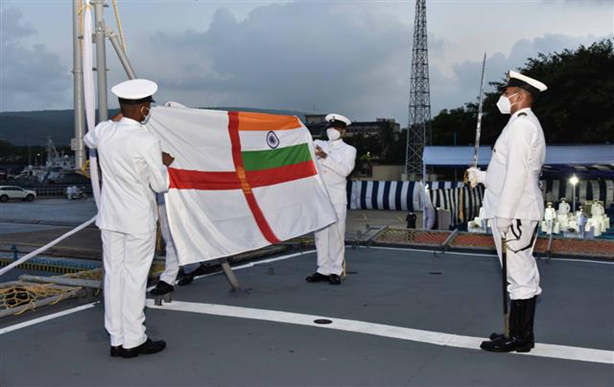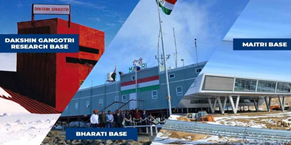Lok Sabha passes Indian Antarctic Bill, 2022 (without any change)
- Posted By
10Pointer
- Categories
Polity & Governance
- Published
23rd Jul, 2022
-
Context
The Lok Sabha deferred the consideration and passing of the Indian Antarctic Bill, 2022 as the Opposition benches were empty due to the ongoing protests outside of Parliament.

Indian research station in Antarctica
- Dakshin Gangotri: As part of the Indian Antarctic Program, Dakshin Gangotri was the first Indian scientific research base station established in Antarctica.
- Maitri: Completed in 1989, it is India’s second permanent Antarctic research station.
- Bharti: Bharti, India’s most recent research station, which has been operational since 2012. It was built to allow researchers to work safely in inclement weather.

|
What is the Indian Antarctic Bill?
- The Indian Antarctic Bill is the first domestic legislation with regard to Antarctica in India.
- The bill aims to give effect to the Antarctic Treaty, which was signed in 1959 by 12 countries.
- It seeks to extend the application of domestic laws to research stations set up by India in the Antarctic region.
- India has two active research stations in the Antarctic -- Maitri and Bharti -- where scientists are involved in research.
Key-features of the Bill
|
Activities that are prohibited
- Nuclear detonation or radioactive waste disposal
- Introduction of non-sterile soil
- Discharge of garbage, plastic, or other potentially harmful substances into the sea.
|
- Protecting environment: To provide for national measures to protect the Antarctic environment and associated ecosystems, as well as to give effect to the Antarctic Treaty.
- Harmonious policy framework: To provide a harmonious policy framework for India’s Antarctic activities through a well-established legal mechanism.
- Facilitating activities: Facilitate activities of the Indian Antarctic Programme, such as Antarctic tourism management and sustainable fisheries development.
- Control over activities: To make it illegal to conduct certain activities without a permit or the written permission of another protocol party.
- Prohibit drilling, dredging, excavation, or collection of mineral resources, as well as any activity that identifies the location of such mineral deposits.
- Inspections: To provide for inspection in India by an officer designated as an Inspector by the Central Government, as well as to form an inspection team to conduct inspections in Antarctica.
About Antarctic Governance Committee
- The Committee will empower the government to form an Antarctic governance and environmental protection committee to monitor, implement, and ensure compliance with relevant international laws, emissions standards, and protection rules.
- The panel will be chaired ex officio by the secretary of the Ministry of Earth Sciences.
- He/she has served as vice-president of the International Science Council’s Scientific Committee on Antarctic Research since 2018.
- The committee will consist of ten members from various Union government ministries, departments, and organisations, as well as two experts on the Antarctic environment or other relevant areas.
About Antarctica Treaty
- Antarctica has a geographical area of 14 million sq. km and has had no indigenous population (i.e. “Antarcticans” don’t exist).
- However, a few thousand people reside there, in some 40 research stations spread across the continent, throughout the year.
|
- In 1959, 12 countries – Argentina, Australia, Belgium, Chile, France, Japan, New Zealand, Norway, South Africa, the USSR, the UK and the US signed the Antarctic Treaty.
- Their aim was to prevent the continent from being militarised and to establish it as a center of peaceful activities.
- India became a signatory to it in 1983.
- Today it counts more than 54 members.
The Indian Antarctic Program
- It is a programme of scientific research and exploration run by the National Centre for Antarctic and Ocean Research (NCPOR).
- It all began in 1981, with the first Indian expedition to Antarctica.
- NCPOR is the country’s nodal agency for the planning, promotion, coordination, and execution of all polar and southern ocean scientific research, as well as the associated logistics activities.
- It was founded in 1998.
